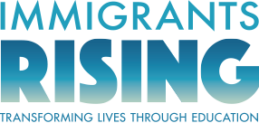Applying for Advance Parole: A Preliminary Checklist
Themes/Topics: Law & Policy
Geography: California, National
Audience: Undocumented Youth
This checklist is designed to help you navigate the Advance Parole application process. Please note that this resource includes starting points, but is not an exact step-by-step guide or legal advice.
1. Choose the category that best suits your situation & provide supporting evidence:
- Humanitarian purposes (visiting a sick relative, attending a funeral, emergency medical situation)
- Examples of supporting evidence include: a letter from a doctor confirming the medical treatment/diagnosis of the loved one, deceased family member’s death certificate.
- You should also include birth certificates or other documentation to prove the familial relation if traveling because of a family member.
- Educational purposes (study abroad programs, academic research)
- Examples of supporting evidence include: a letter from the school/university explaining what the program is, documentation of enrollment.
- Employment purposes (job trainings, conferences, important meetings)
- Examples of supporting evidence include: a letter from your employer explaining why the travel is necessary, program/agenda for the event you plan to attend.
2. Gather the necessary paperwork:
- A completed I-131 Application for Travel Document form, found at uscis.gov
- Evidence of your reason for travel (see above for examples of evidence)
- A copy of your DACA approval notice
- A copy of a photo identification card (like your work permit or a state-issued identification card)
- A $575 Application fee (money order or check payable to “U.S. Department of Homeland Security”).
Note: There is a fee waiver available for people applying based on humanitarian reasons, but it is rarely granted. To learn more about how to cover the costs of your Advance Parole trip, check out the “Funding My Trip” section under our Advance Parole Travel Guide at immigrantsrising.org/AP.
3. Consult with your networks
- Ask people you trust to look over your application and make sure that: you have fulfilled all of the requirements, that everything is accurate and clear, and that there are no spelling errors or other mistakes.
Note: any Form I-131 that is not signed or accompanied by the correct fees will be automatically rejected. - If possible, consult with a lawyer about your specific situation and what risks you might be facing by applying for and traveling with Advance Parole. Ask for their advice in navigating the application process. It is especially recommended that you consult with a lawyer before applying if one of the following applies to you:
- You have previously been deported, have an old deportation order, or have ever been in removal (deportation) proceedings.
- You have had contact with the criminal-legal system (e.g. arrested, charged with any crime, etc).
- You are unsure how you first entered the country.
- You have left and come back to the U.S. on more than one occasion.
Renata’s Story: I got a lawyer’s perspective
4. Submit your application
- Check the Filing Addresses for Form I-131 webpage for information on where to mail your application.
5. Wait for a response
- After you submit your application, you may be asked to schedule an interview with a USCIS official. Due to application backlogs, there are currently long wait times to receive notice regarding whether your application was approved or denied. If needed, consider contacting USCIS customer service to make an expedite request with an InfoPass appointment through your local office. If you have trouble getting through to a live agent, consider getting legal help.
6. Book your travel
- If your situation does not allow for you to wait to finalize your travel arrangements until you receive confirmation that you’ve been approved for Advance Parole, it might be a good idea to look into travel insurance to allow you some flexibility and protection in case of any changes.
This resource is part of the Advance Parole project. To learn more, visit immigrantsrising.org/AP.
Back to Resources